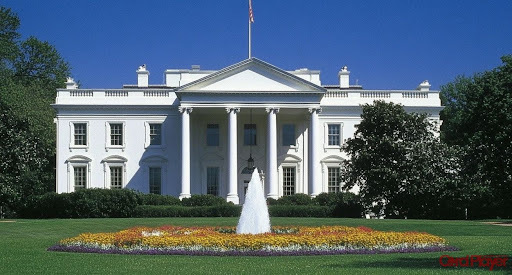
The race to legislate legal gambling in U.S. states slowed significantly in 2024, with only three states, North Carolina, Vermont, and Delaware approving online sports betting.
No state expanded into other forms of legal online gambling, such as online casinos. This means that if you’re hoping to play online blackjack in California or spin a virtual roulette wheel in Texas, you’ll need to wait for legislative changes in those states and advocate for broader gambling legalization.
So, what does the future hold for online gambling in the U.S.? Public opinion is generally positive but there are concerns about the negative impacts of gambling. Some commentators are asking for the legislation to be reviewed; others are going so far as to demand its reversal.
Are you betting on the future? Here’s the take on 2025.
The States Status Quo
Gambling legislation in the U.S. varies from state to state.
| State | Sports Betting | Online Sports Betting | Online Casinos |
| Alabama | No | No | No |
| Alaska | No | No | No |
| Arizona | Yes | Yes | No |
| Arkansas | Yes | Yes | No |
| California | No | No | No |
| Colorado | Yes | Yes | No |
| Connecticut | Yes | Yes | Yes |
| Delaware | Yes | Yes | Yes |
| Florida | Yes | No | No |
| Georgia | No | No | No |
| Hawaii | No | No | No |
| Idaho | No | No | No |
| Illinois | Yes | Yes | No |
| Indiana | Yes | Yes | No |
| Iowa | Yes | Yes | No |
| Kansas | Yes | Yes | No |
| Kentucky | No | No | No |
| Louisiana | Yes | Yes | No |
| Maine | Yes | No | No |
| Maryland | Yes | Yes | No |
| Massachusetts | Yes | Yes | No |
| Michigan | Yes | Yes | Yes |
| Minnesota | No | No | No |
| Mississippi | Yes | No | No |
| Missouri | No | No | No |
| Montana | Yes | No | No |
| Nebraska | Yes | No | No |
| Nevada | Yes | Yes | No |
| New Hampshire | Yes | Yes | No |
| New Jersey | Yes | Yes | Yes |
| New Mexico | Yes | No | No |
| New York | Yes | Yes | No |
| North Carolina | Yes | No | No |
| North Dakota | Yes | No | No |
| Ohio | Yes | Yes | No |
| Oklahoma | No | No | No |
| Oregon | Yes | Yes | No |
| Pennsylvania | Yes | Yes | Yes |
| Rhode Island | Yes | Yes | Yes |
| South Carolina | No | No | No |
| South Dakota | Yes | No | No |
| Tennessee | Yes | Yes | No |
| Texas | No | No | No |
| Utah | No | No | No |
| Vermont | Yes | Yes | No |
| Virginia | Yes | Yes | No |
| Washington | Yes | No | No |
| Washington D.C. | Yes | Yes | No |
| West Virginia | Yes | Yes | Yes |
| Wisconsin | Yes | No | No |
| Wyoming | Yes | Yes | No |
- Only seven states offer players the full range of betting options: online casino, online sports betting, and brick-and-mortar gambling.
- Thirty states offer sports fans a chance to bet on their favorite team, via apps, smartphones, and websites.
- A further eight states allow sports betting at a traditional casino.
- A total of 49 states permit some form of gambling: lottery, track racing, and Indian reservation casinos
- Only three states maintain an outright ban: Alaska, Utah, and Hawaii.
Recent Developments
 2024 was a very inactive year for the expansion of gambling in the U.S., with just three states advancing legislation.
2024 was a very inactive year for the expansion of gambling in the U.S., with just three states advancing legislation.
The last state to approve online casino gaming was Rhode Island, in June 2023, when Governor Dan McKee signed Senate Bill 948 into law. Since then, the only legislation passed has been related to online sports betting.
It was the quietest year for legislation, since the Professional and Amateur Sports Protection Act (PASPA) was passed in 2018.
2024 Highlights
Alabama: The Senate tossed out a package of legal lottery bills, hours after they had been approved by the house. It’s one of only five states that still has no lottery.
Hawaii: A legal sports betting bill got as far as the committee stage but lawmakers could not agree on what legal gambling would ever look like.
Minnesota: Warfare between opposing sides has resulted in bills to restrict gambling, in tandem with bills to legislate. Minnesota’s 11 tribal nations are not keen to lose their exclusive rights to gambling. It’s chaotic.
Oklahoma: The state’s 39 tribes operate more than 125 gaming locations. Lawmakers are pushing for legal sports betting but the bill will need to be endorsed by the tribes. It’s not looking promising.
None of the states above made any significant advances in 2024 despite forwarding legislation.
Revenue 2024
One last factor to consider, before predictions for 2025, is revenue.
Legislation progress is slow, but revenues are rocketing. The increase in commercial gaming revenue (CGR) in 2024 will be difficult for lawmakers to ignore.
 The estimated revenue for 2024 is expected to pass $67 billion. In the first 10 months of the year, CGR reached $59.11 billion, a 7.3% increase compared to the same period in 2023.
The estimated revenue for 2024 is expected to pass $67 billion. In the first 10 months of the year, CGR reached $59.11 billion, a 7.3% increase compared to the same period in 2023.
Sports betting boomed online, with sportsbooks handling $150 million, with a hold of $14.2 billion. A staggering 95 percent of all sports betting was wagered online.
iGaming posted gross revenue of $2.2 billion, an increase of 26.44% on the previous year’s total of $1.74 billion.
The trajectory for revenue is clear: onwards and upwards.
The Future – States To Watch
So, if 2024 was a busted flush, what does 2025 look like for the betting business in the U.S.? The legislators are stalled, opposition is increasing, but money talks. And when it comes to online gambling: it shouts.
States That Legislate
Georgia: Lawmakers are hard at work in Georgia, trying to agree on how to spend the money collected via gambling revenue taxation. If they can agree on that, all bets are on. The legislators are definitely interested.
Missouri: By the time the NFL playoffs begin in January, sports fans will still have to cross state lines to make a bet. The Show Me state voted to legalize sports betting but officials have until December 2025 to unravel the red tape, regulate it, and release that revenue.
Kentucky: Sports betting is already legal in Kentucky and the revenue bubbling through the Bluegrass state means it might not be long before online casino iGaming gets the green light.
California: California’s casino-owning tribes are key to legislation. Unfortunately, they are busy suing opponents. Ballots to legalize sports betting in 2022 failed. However, the eye-watering revenue potential is hard to ignore.
Texas: Another potential betting behemoth is Texas. A bill allowing for legal sports betting and seven destination resort casinos has been pre-filed. However, a lack of clarity and momentum might leave gamblers heading to surrounding states for their betting action.
Gambling is largely illegal in Texas, but the state has three tribal casinos, which are allowed to operate under federal law.
States That Elevate
As lawmakers in some states debate the detail, in Illinois, Indiana, and New York, the success of sports betting looks likely to unlock access to online casinos and more widespread poker rooms.
It’s highly likely that states with successful online sports betting businesses, enjoying the revenue and taxes, will be more willing to consider other iGaming options.
Feds And Regs
Although PASPA keeps gambling legislation at the state level, as the industry thrives the federal government will probably introduce guidelines to standardize advertising, consumer protection, and responsible gambling practices.
In tandem with expansion will be a push for more responsible gambling initiatives. States are likely to require operators to impose stricter regulations, improve awareness about the risks of gambling, and provide tools for self-exclusion.
If the U.S. follows in the same steps as Europe, advertising will also come under the spotlight. Expect the same kind of restrictions as those levied against tobacco and alcohol.
Tech, Crypto And New Markets
 Technology and gambling have always been interlinked and the relationship is as solid as ever. In 2025, the majority of gambling activity will take place on mobile devices. Augmented and virtual reality are getting more traction. You can bet that gambling will continue to find its way into this virtual space.
Technology and gambling have always been interlinked and the relationship is as solid as ever. In 2025, the majority of gambling activity will take place on mobile devices. Augmented and virtual reality are getting more traction. You can bet that gambling will continue to find its way into this virtual space.
Cryptocurrencies and blockchain now feature in many online gambling websites and apps. It’s a trend that is showing no sign of stopping in 2025.
AI will also continue to feature in the gambling space; both as a tool to offer players bespoke promotions, as well as a device to monitor player behavior and potentially track problem gambling.
The Esports market is growing rapidly, with a global audience expected to reach 641 million by 2025. It’s a new market, perfectly focused on younger gamblers. Skill-based games might also start replacing traditional slots.
The Court Of Public Opinion
A 2024 online survey found that more than 60% of Americans had enjoyed some form of gambling in the previous 12 months; indicating widespread acceptance.
A survey by the American Gaming Association in August 2024 showed an increase in favorability towards gambling, now at 65%, compared to 55% for the previous year.
On the other hand, a Statista survey indicated that a significant proportion of the population thought the gambling industry should be more regulated.
Overall, public opinion seems fairly positive about gambling, specifically towards sports betting, because of the links to major leagues and competitions. The additional funds flowing into the public purse are a tangible benefit.
Of course, there are many politicians and lawmakers who are opposed to regulated gambling; perceiving it as a Pandora’s Box that could lead to addiction and misery.
The Trump Card
As Donald Trump begins his second term, it’s hard to imagine that there won’t be implications for the gambling industry; not least because he had a huge stake in the business in the 1980s.
Trump is anti-regulation. He will leave it up to the individual states to decide their own betting laws. His personal history in the business might ensure his support for expansion of the industry. The economic arguments are persuasive.
On the other hand, Trump’s ties to conservative religious groups might dampen his public support for the industry.
It’s Trump. Who knows?
Conclusion
If the U.S. betting business was a horse, how would you describe it? Has it set the pace? Is it a closer’s dream – with more in the tank? Is it just a plodder, grinding out chunks of legislation, revealing new turf, and slowly making its way to the finish line?
Sports betting and gambling have a confused and mixed history in the U.S. On one hand, there is Las Vegas; the epicenter of all things casino. On the other hand, there is the 1919 Black Sox scandal; when an entire team threw the World Series for bribes.
Not to mention the history between 20th century organized crime and gambling. Today, the legal betting business is under microscopic scrutiny. It has to be transparent and responsible.
There is clearly an appetite for online gambling in the U.S. It’s up to the lawmakers to cook up a dish that everyone can enjoy.
Will 2025 be a big year for the betting business? It’s a moderately safe bet. But don’t gamble more than you can afford.
 Back in 1998, Paul Cullen quit his job at a newspaper to work at the world’s first online sportsbook, Intertops. Since then, the industry expert has worked for some of the gambling world’s biggest brands including BetOnline, Costa Bingo, Casino.com, Mansion Poker, Bodog, Casumo, and 32Red. (He even sent Phil Hellmuth to the WSOP dressed as a Roman Emperor!)
Back in 1998, Paul Cullen quit his job at a newspaper to work at the world’s first online sportsbook, Intertops. Since then, the industry expert has worked for some of the gambling world’s biggest brands including BetOnline, Costa Bingo, Casino.com, Mansion Poker, Bodog, Casumo, and 32Red. (He even sent Phil Hellmuth to the WSOP dressed as a Roman Emperor!)
*Photo – Baishampayan Ghose via Flickr, Wikimedia
